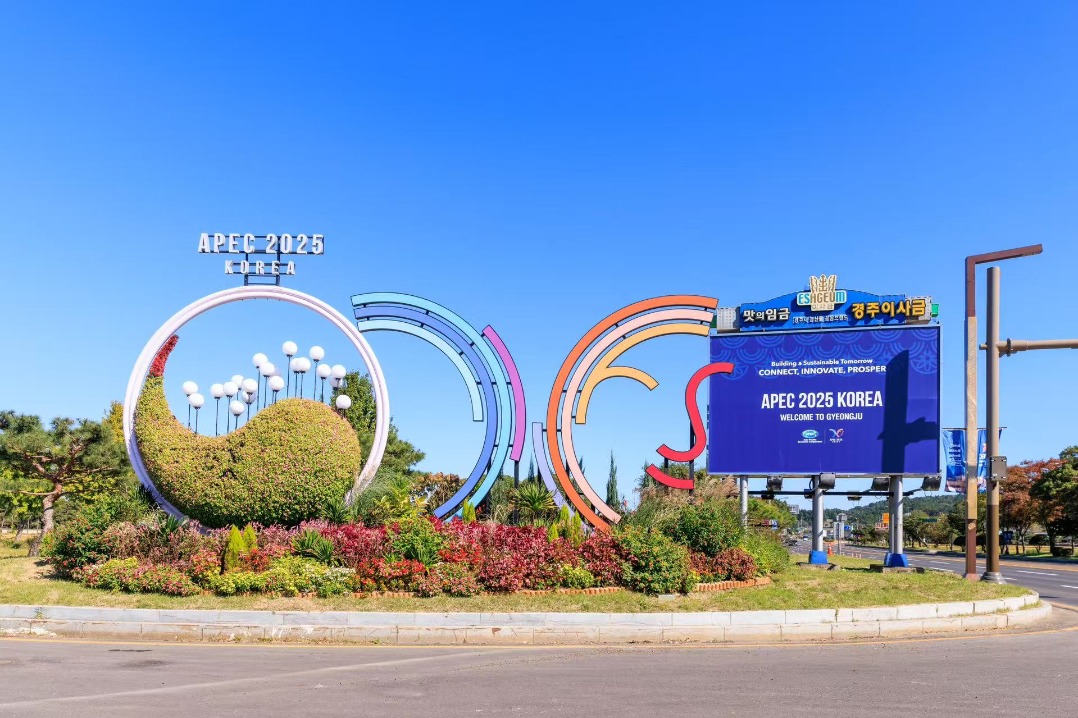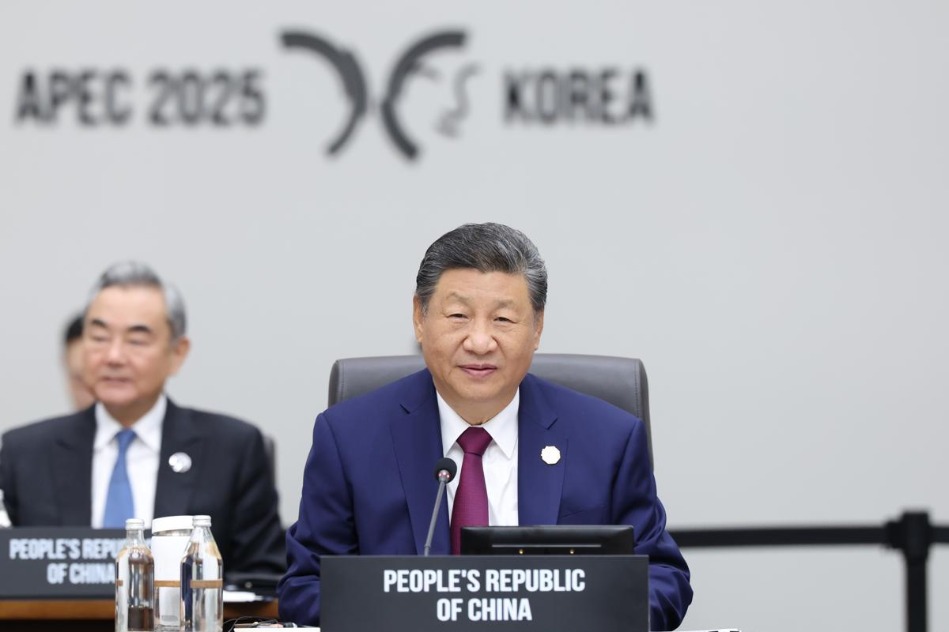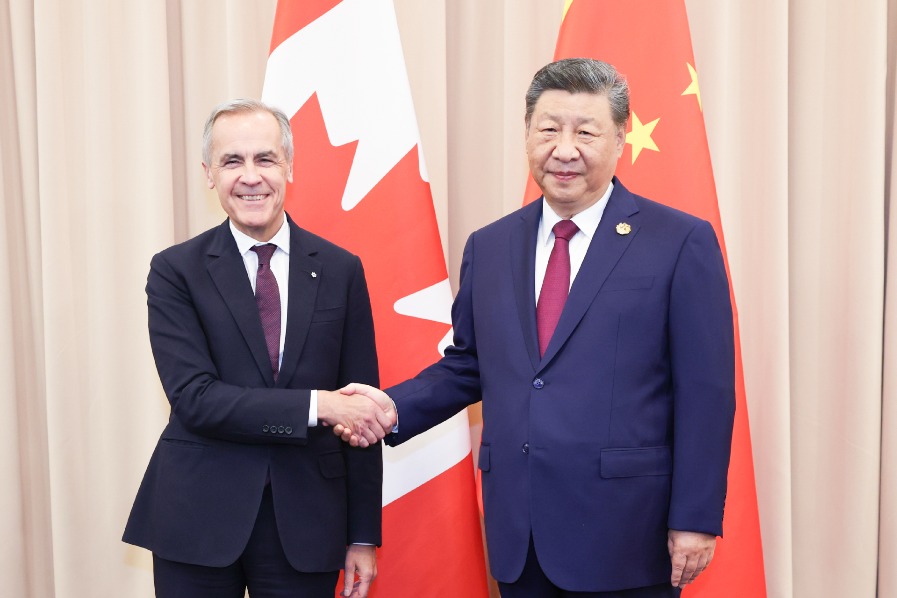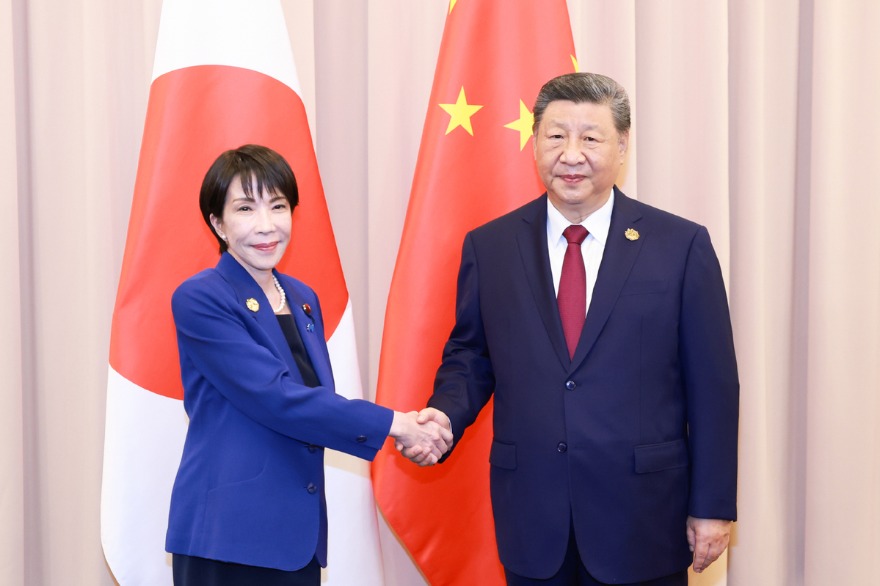Relations at critical crossroad

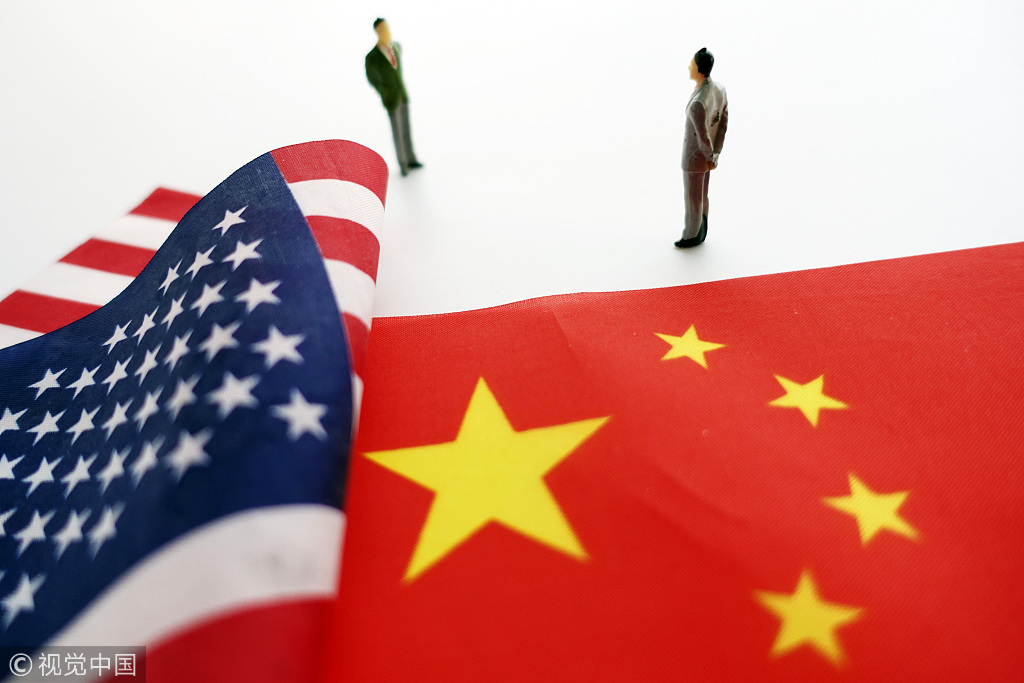
Relations between China and the United States now stand at a critical crossroad. In the face of increasing competition and friction, will they move toward confrontation, or make an effort to manage and control their competition and differences? Will they persist with their dialogue and cooperation so they can steer the bilateral relationship toward a new model of major country relations?
It is now imperative they avoid continued expansion and escalation of their trade dispute. In a comprehensive trade war, not only would both suffer great economic losses, but economic relations, the long-term ballast for China-US relations, would become a source of confrontation. China and the US should always maintain communication and separate their political and economic affairs. The two sides should also strive to reach new agreements on free trade, fair trade, and the principle of reciprocity and mutual advantage. In the process of trying to resolve trade disputes, it is crucial that China actively strengthen its market-oriented reforms, expand its opening-up, facilitate economic restructuring, and persevere in multilateralism. The US must work to restrain its unilateral or protectionist inclinations.
It is critical to properly handle the Taiwan question. Taiwan is one of China's core interests and has always been the most important and most sensitive topic in China-US relations, which are stable only when the situation across the Taiwan Straits is stable. The US should act in strict observance of the one-China principle enshrined in their three joint communiqu??s. Any challenge to the one-China principle or attempt to develop official relations with Taiwan will only have disastrous consequences for China-US relations.
It is also an urgent and important task to manage and control the frictions between the two sides in the South China Sea. In the near term, they should first of all manage the fierce friction caused by the so-called freedom of navigation operations conducted by the US close to Chinese islands and reefs and guard vigilantly against accidentally sparking a conflict. Then, the two sides should develop strategic dialogue on avoiding militarization of the South China Sea in pursuit of feasible solutions on the basis of each other's security concerns. With a long-term perspective in mind, a possible way-out might be the US supporting China, other claimants in the South China Seas, and the members of ASEAN to resolve maritime disputes and maintain peace and stability on the basis of the dual-track approach proposed by China, while China supports all relevant countries, the US included, to jointly safeguard freedom and security of navigation.
Amid the increased Sino-US competition and friction, strengthened crisis management, especially management of military and security crises, should be central in the two country's efforts to manage and control their competition so as to avoid conflict and confrontation. In order to advance the development of bilateral crisis management mechanisms, the two countries should adopt a series of specific measures, such as strengthening the crisis management function of the heads-of-state, military, and diplomatic hotlines and make sure that they play critical roles in controlling contingencies and crises. They should strive for an early agreement on the basic principles of crisis management and further strengthen their military and security dialogues. The two countries should also effectively implement and enrich the two confidence-building memorandums of understanding between the two militaries; working to maintain and advance the dialogue between the Chinese and American joint staffs designed to strengthen exchanges and cooperation and improve crisis management and communication.
To reestablish strategic mutual trust, China and the US should strive to reach agreement on a security framework for the Asia-Pacific. For a long time, the two sides have been having serious differences on the Asia-Pacific security framework, especially on the question of America's bilateral military alliances in this region. In 2017, the Chinese government made it very clear that given this region's history and reality, it is normal for various mechanisms, including various regional multilateral security dialogues and pre-existing military alliances, to advance in parallel in the evolution of a regional security architecture. China urges the US to enhance transparency of its military allies, avoid confrontation and play a constructive role in safeguarding peace and stability in the region.
To reestablish strategic mutual trust, China and the US should also strive to reach agreements on jointly safeguarding and developing the existing international order and maintain and strengthen their cooperation in global governance. In all its foreign policies and actions, China will always be a builder of world peace, a contributor to global development, and a defender of the international order. The US should support China in doing so. On the basis of the UN Charter and norms of international law, the two sides should continue cooperating in the fields of nonproliferation, nuclear safety and security, counterterrorism, security in global public domains such as sea lanes, cross-boundary crimes, financial stability, infectious diseases, and international relief operations. Promoting global and regional stability, and stability in the Middle East and on the Korean Peninsula in particular, are shared interests and responsibilities.
For the above efforts to be successful, China and the US must maintain effective dialogue and exchanges. Since the beginning of this year, given the worsening relationship, dialogue and exchanges have been stagnant or even interrupted, which is dangerous. Among the four high-level dialogues (the Diplomatic and Security Dialogue, the Comprehensive Economic Dialogue, the Law Enforcement and Cyber Strategic Dialogue, and the Social and People-to-People Dialogue) endorsed by the two heads of states in 2017, none are being conducted. The two sides must take steps to change the situation as soon as possible. In the new situation, defining the China-US relationship should be an important topic of bilateral dialogues. The US regards China as a "strategic competitor" and "revisionist". What does it mean? And what does China mean when it talks about strengthening the country and the military? The two sides should develop in-depth dialogue to enhance their mutual understanding and reduce misgivings with a view to avoiding misunderstanding or miscalculation.
That China sticks to its strategic choices and international commitments is of great significance to stabilizing China-US relations. For a long time, China has repeatedly declared that it pursues peaceful development, does not engage in any arms race, does not seek any sphere of influence, does not enter into any alliance with any big country or develop any military bloc, and will never seek hegemony or expansion. For China, these are not only important conclusions from the Cold War but also strategic choices made in the new international situation and its solemn commitments to the whole world. Implementation of these commitments in earnest will play a role in gradually reducing the Chinathreat fallacy in the US and steering China-US relations back to the track of sound and stable development.
The author is director of research at the China Foundation for International Strategic Studies. Courtesy: chinausfocus.com

















